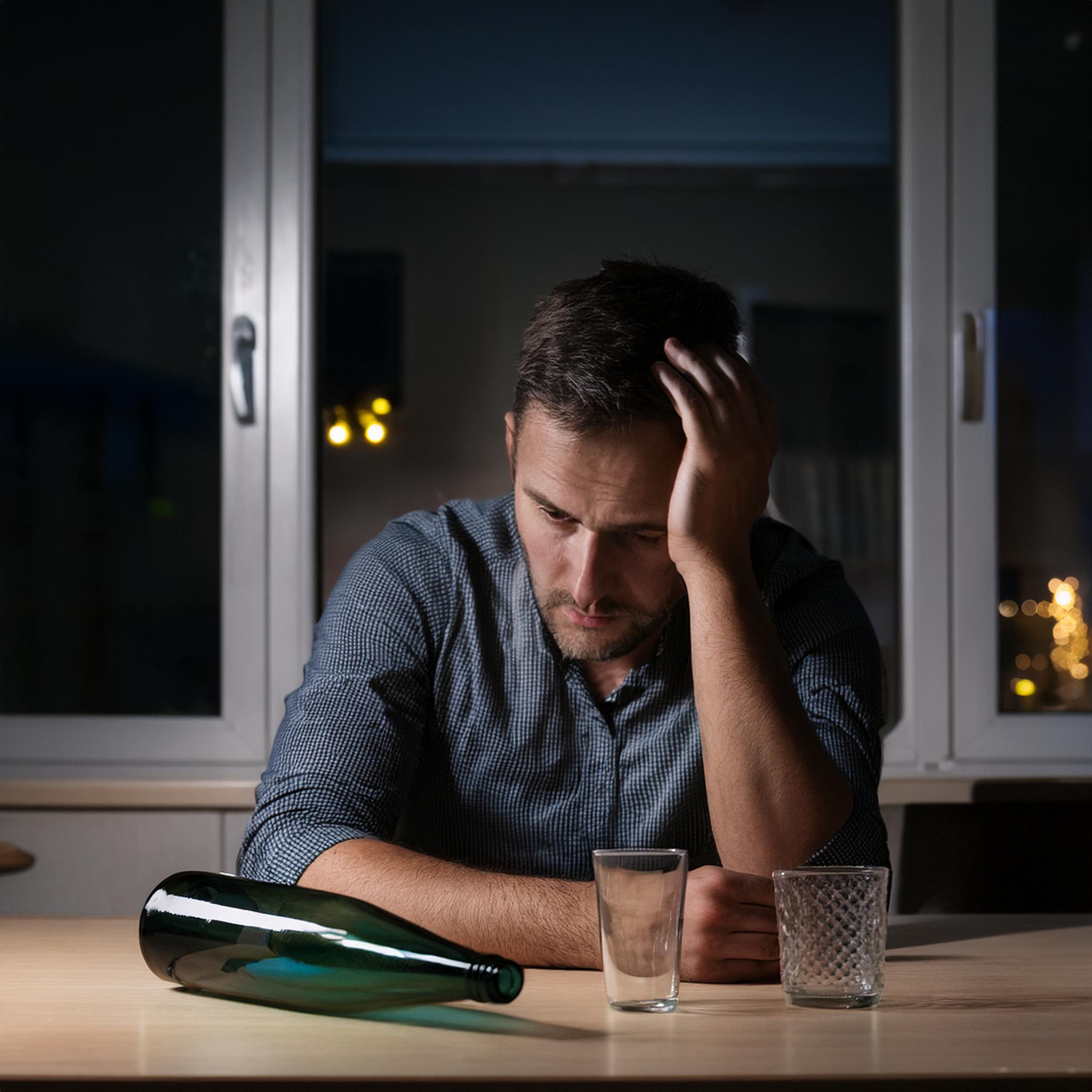Have you ever found yourself thinking, “I can’t stop drinking once I start”? Maybe it starts with just one drink to unwind, but before you know it, the night’s a blur, and you wake up the next day feeling regret. Or maybe, deep down, you’re thinking, “I can’t quit drinking” because it feels impossible to break free from the cycle.
I get it. You’re not alone in this. The truth is, many of us start using alcohol as a way to cope with stress, loneliness, or even just out of habit. It creeps up on you, and before you know it, it feels like alcohol has a grip on your life that you can’t shake. But here’s something you need to know – it is possible to stop, and you don’t have to figure it all out on your own.
Let’s take it step by step, together.
“I Can’t Stop Drinking Once I Start”
Why It Feels Like You’ve Lost Control
If you’ve ever felt like you can’t stop drinking once you start, it’s not because you’re weak or lack willpower. What you’re feeling is a very real response that happens in your brain. Alcohol messes with the part of your brain that controls decision-making and reward. So, when you start drinking, your brain keeps telling you, “More, more, more.”
It’s not your fault. Understanding that it’s a chemical reaction helps take some of the shame out of it. Once you’re aware of how alcohol can take control, it becomes a little easier to start planning ways to take that control back. You can set small goals, like deciding to stop after one drink or avoiding situations where you know you’ll be tempted. It’s okay if this feels difficult. You’re not supposed to have all the answers right away.
The Struggle of Admitting “I Can’t Quit Drinking”

Saying to yourself, “I can’t quit drinking,” is a huge, brave step. It’s acknowledging that alcohol has started to have a bigger role in your life than you ever intended. It’s hard, isn’t it? Maybe you reach for a drink when you’re stressed or lonely, or maybe it’s become a nightly ritual to wind down. Whatever the reason, alcohol has woven itself into your life, and now the idea of quitting feels overwhelming.
But here’s the thing: you can quit. And you don’t have to do it all at once. It’s okay to start small. Maybe you cut back on how much you drink in one sitting or start having a few alcohol-free nights each week. Breaking it down into manageable steps makes the idea of quitting less daunting.
And if you’re feeling like you can’t do it alone – that’s okay too. You’re not meant to. Reaching out for support can make all the difference. Whether it’s a close friend, family member, or a support group like AA, having people who understand what you’re going through makes the journey less lonely.
According to the World Health Organization (WHO), alcohol contributes significantly to global health problems, with millions of people suffering from alcohol use disorder (AUD) worldwide. Their research highlights the growing concern over alcohol-related harm, including dependency and chronic health conditions. The WHO emphasizes that reducing alcohol consumption is crucial for improving public health and encourages global efforts to support individuals in overcoming addiction.
How to Break the Habit:
“How Do I Stop Drinking Alcohol Every Night?”
You might be thinking, “How do I stop drinking alcohol every night?” – because it’s become part of your routine. After a long day, the temptation to have “just one drink” can feel impossible to resist. The thing is, that one drink often turns into two, three, or more. And suddenly, it’s a nightly habit.
But there’s a way out. It starts with small changes to your routine. Try this:
- Replace the drink: It sounds simple, but switching your evening drink for something non-alcoholic, like herbal tea, sparkling water, or alcohol-free beer, can make a huge difference. Sometimes it’s not even the alcohol itself you miss – it’s the routine of having a drink in your hand.
- Find a new way to relax: Whether it’s taking a walk, reading a book, or picking up a hobby, finding a way to wind down without alcohol will help break the cycle. It might feel strange at first, but over time, these new habits will start to feel natural.
- Set limits: Give yourself clear goals. Tell yourself, “I’m not drinking tonight,” and stick to it. Achieving these little wins helps build your confidence.
- Avoid temptation: If you can, try to keep alcohol out of the house. When it’s not there, you won’t be as tempted to reach for it out of habit.
And most importantly, don’t beat yourself up if you have a bad night. Breaking the habit takes time. Celebrate the small victories and be kind to yourself along the way.
Committing to Change

How Do You Give Up Alcohol?
If you’re asking yourself, “How do you give up alcohol?” – you’ve already made an important decision. Deciding to quit is a powerful move towards reclaiming your life. But let’s be real, it’s not easy.
The best way to start is by figuring out why you want to quit. Is it for your health? Your family? To feel more in control? Write it down. This will be your reminder when things get tough. And trust me, they will get tough. But having that “why” written down will keep you motivated when you’re questioning whether quitting is worth it.
You’ll also want to educate yourself. Learn about how alcohol affects your body and mind. The more you understand, the easier it will be to stick to your decision. Over time, you’ll start seeing benefits like better sleep, more energy, clearer thinking, and improved mood. You’ll wake up in the mornings and feel proud of yourself for making a positive change.
And please, get support. Quitting alcohol doesn’t have to be a solo journey. Talk to people who’ve been through it or are going through it. You’ll find strength in numbers.
Coping with Withdrawal: “How to Stop Hangover Shakes”
If you’ve ever experienced hangover shakes, you know how unsettling they can be. They’re a sign that your body is struggling to adjust after drinking too much. If you want to know how to stop hangover shakes, the long-term solution is simple: reduce your drinking or quit altogether.
But if you’re in the middle of it right now, here are a few ways to ease the symptoms:
- Hydrate: Alcohol dehydrates your body, and dehydration makes hangover symptoms worse. Drink plenty of water or an electrolyte drink.
- Eat a proper meal: Low blood sugar can cause shakes, so eating something – especially something with protein and complex carbs – can help steady you.
- Rest: Your body needs time to recover. Resting allows your nervous system to stabilise after the shock of too much alcohol.
If you find that hangover shakes are becoming a regular thing, it’s your body’s way of telling you it’s time for a change. Cutting back on alcohol, or quitting altogether, will help you avoid these uncomfortable symptoms in the future.
You Can Do This: Finding Hope and Control
If you’re thinking, “I can’t stop drinking once I start,” or “I can’t quit drinking,” I want you to know that you can. It might not feel like it right now, but change is possible, and it’s okay to take small steps.
Remember, you don’t have to do it perfectly, and you don’t have to do it alone. There’s no shame in struggling with alcohol – so many people do. What matters is that you’re here, reading this, and thinking about making a change. That’s where it all begins.
You’ve got this. One day at a time.
If you feel like alcohol is taking over your life, we’re here to help. Whether you’re ready to quit or just need that support, you don’t have to face it alone. Reach out to us here for a confidential chat and we’ll go through this together.






